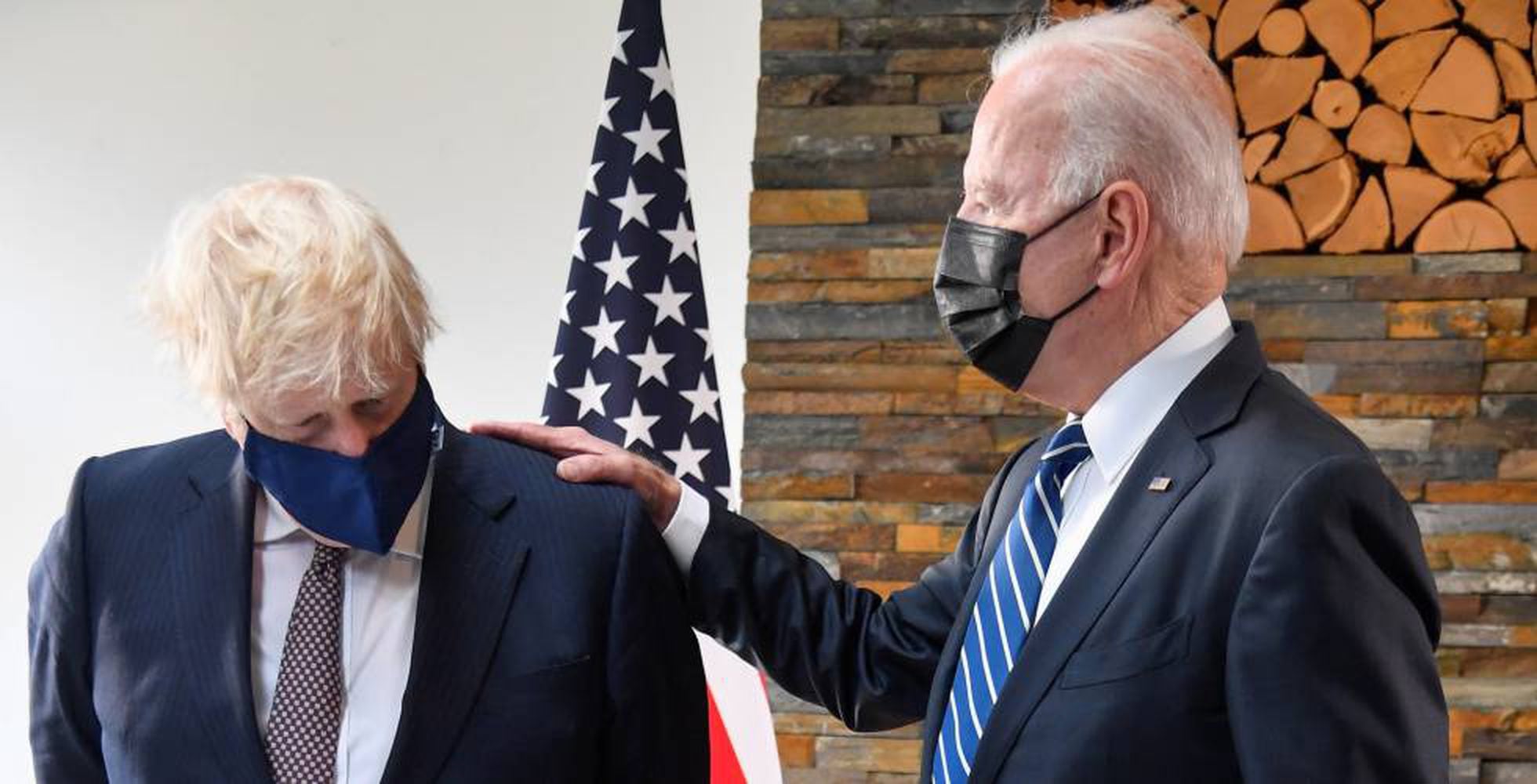
The pandemic and Brexit have exposed the United Kingdom’s reluctance to accept its asymmetric with the U.S.
in view of the U.S. hesitation to reopen its borders to Britons who have been fully vaccinated against COVID-19, the Boris Johnson government’s frustration confirms that the United Kingdom still labors under the false impression, as it has for decades, that the trans-Atlantic partnership is one between equals. The announcement this week that U.S. citizens with full immunity will not have to quarantine upon their arrival in Great Britain (England, Scotland and Wales) has not been reciprocated in the U.S. What is truly strange, however, is not the fact that Joe Biden’s administration has maintained its position on international travel, but that Johnson thought he would change it.
The move reflects the unequal footing of the two powers who have a “special” relationship but from fundamentally opposite points of view, where the importance they place on the partnership is undoubtedly unequal. In the Anglo American relationship, the White House has never had to charm its British ally, whereas Johnson is just the latest in a long line of prime ministers who refuse to accept that their country is the weaker of the two.
Since the moment it started to become clear who would be the 46th U.S. president last November, Downing Street launched an effort to dazzle the new head of state, someone who had never showed much enthusiasm for the partnership. Johnson began at a disadvantage. Because of Donald Trump’s endorsement during the Conservative Party primaries that made Johnson prime minister, suspicion was rife in Biden’s circle, not only because Johnson was apparently close to the former president, but because of the key role Johnson played in Brexit.
Biden, the most Irish of U.S. leaders by his own admission, openly supported the United Kingdom remaining in the European Union, but it is precisely in these first steps of its solo journey that London depends on Washington more than it has since the Cold War. Anxious to prove the usefulness of the split that he himself backed, Johnson urgently needs to reach a trade agreement with the planet’s biggest economy, but the priority that Trump had guaranteed, at least in saying so, has given way to a less urgent response from the current U.S. administration.
In the months before the Brexit referendum in 2016, Barack Obama, whom Biden served as vice president, warned that if the United Kingdom left the EU, it would go to the “back of the queue” for trade deals, and the current president has shown that he is not in a rush.
The conditions for a trade deal address a delicate issue, as the United States is demanding a solution to the contentious reopening with Brussels of the Northern Ireland Protocol (the procedure that avoids a border with the Republic of Ireland, considered vital for peace in the territory, and which the prime minister wants to renegotiate from the beginning).
Until now, London has done everything in its power to prove that it is a useful ally. Hardly two weeks after the presidential election in 2020, it announced a significant cash injection of 16.5 billion pounds (approximately $22.8 billion) into its armed forces for the next four years, with the hope of confirming its commitment to maintaining military capacity, essential for the White House.
Despite the controversial austerity measures imposed in London due to the financial impact of the pandemic such as the reduction of the foreign aid budget, no amount of spending is considered too much when it comes to strengthening the trans-Atlantic relationship. This campaign explains the disproportionate nature of the special relationship.
The U.K. considers relations with the U.S. key to its strategic interests, while for Washington, the special relationship is more about nostalgia. After all, the role of each is based on two factors that date back to World War II: the consolidation of the U.S. as a world power in the face of the end of the British Empire, and the decreasing global influence of the United Kingdom. The U.S. secretary of state in 1962, Dean Acheson, recognized this when he said, “Great Britain has lost an empire and has not yet found a role.”
Being Loved
In fact, the asymmetry has been there from the start. Seventy-five years ago in a Missouri speech about the Iron Curtain, it was Winston Churchill who coined the term that Johnson dislikes, saying it paints his country as “needy and weak.” The asymmetry is not misguided either; American leaders have no qualms about whether or not they are loved. But in the face of the monopoly they exercise over the institutional and diplomatic agenda of the United Kingdom, British prime ministers, and even their identity, go substantially more unnoticed on the other side of the Atlantic, where the star is always the president, and never a foreign leader.
From his privileged position on the front line for decades, Henry Kissinger is one of the observers who has most accurately described the relationship between the two countries. Referring to a meeting between Prime Minister Harold Wilson and President Richard Nixon, he said that Wilson “greeted the president with the paternal benevolence of the head of an ancient family that has seen better days,”* although he always considered it convenient to maintain the fantasy. “We do not suffer from such an excess of friends that we need to discourage those who feel they have a special relationship with us,” Kissinger said,* advice which undoubtedly has influenced the leaders in the White House to the present day.
*Editor’s Note: These quotations, accurately translated, could not be independently verified.

Leave a Reply
You must be logged in to post a comment.